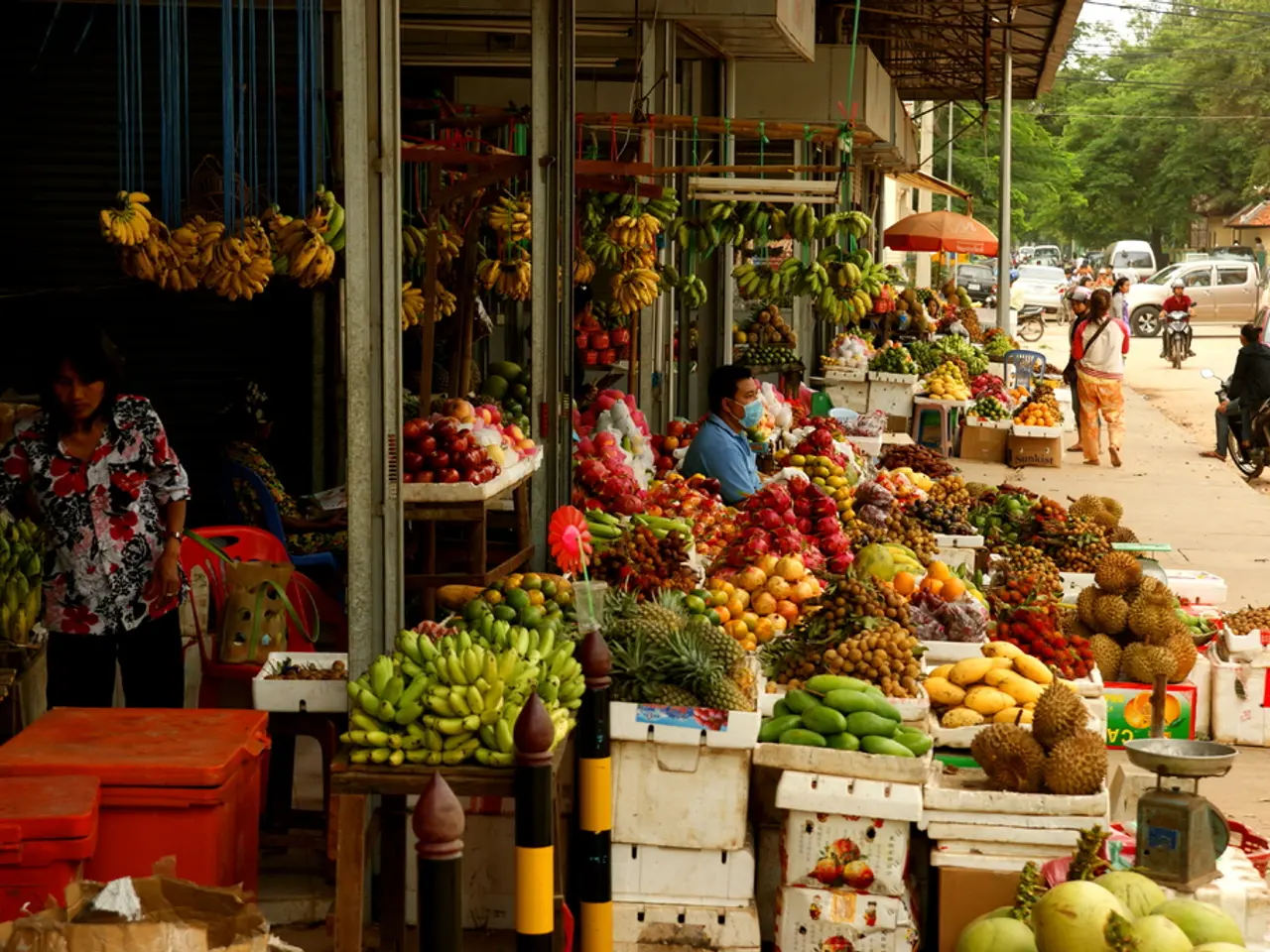Stock Market in Indonesia Urges for a Bounce-back
The Indonesia stock market closed modestly lower on Monday, with the Jakarta Composite Index (JCI) finishing at 7,464.65 points. This slight dip followed a recent sell-off in the NASDAQ and the S&P 500.
The global forecast for Asian markets, however, remains positive, driven by bargain hunting and optimism for an interest rate cut by the Federal Reserve next month. The chances of a quarter point rate cut in September have jumped to 91.9 percent.
In a surprising turn of events, Indonesia's Q2 GDP growth far exceeded expectations. The official data released by Indonesia's official statistics revealed a growth rate of 5.12 percent year-on-year (yoy), higher than both the consensus projection and the 4.87 percent growth in Q1 2025.
Permata Bank's Chief Economist, Josua Pardede, highlighted that the 5.12% growth "far above the consensus projection of growth below 5 percent" and exceeded market expectations. Statistics Indonesia (BPS) confirmed this faster-than-expected expansion, noting household consumption and investment as key drivers.
Some contrasting figures in other sources stating 4.04% growth appear outdated or less aligned with the official data released shortly after in early August. The most authoritative and recent data from Indonesia's official statistics and multiple financial news outlets confirm the 5.12% yoy GDP growth in Q2 2025.
Meanwhile, in the stock market, Astra International added 0.50 percent, while Astra Agro Lestari shed 0.74 percent. Aneka Tambang climbed 1.04 percent, Vale Indonesia surged 5.90 percent, Timah rallied 1.51 percent, and Bumi Resources, Bank Negara Indonesia, and Energi Mega Persada were unchanged.
Bank Mandiri collected 1.99 percent, while Bank CIMB Niaga slipped 0.29 percent. Indosat Ooredoo Hutchison tanked 3.06 percent, Indocement declined 1.34 percent, Semen Indonesia tumbled 1.99 percent, Indofood Sukses Makmur skidded 1.18 percent, and United Tractors jumped 1.98 percent.
Crude oil continued to decline on Monday due to oversupply concerns and fears of a tariff-induced slowdown by the global economy. West Texas Intermediate crude for September delivery was down $1.06 or 1.57 percent at $66.27 per barrel.
Indonesia will release Q2 numbers for gross domestic product later today, providing more insights into the country's economic performance. The European and U.S. markets were sharply higher, and the Asian bourses are expected to follow that lead.
Amidst the positive global forecast for Asian markets, investors might consider re-evaluating their investing strategies in the Indonesian stock market, given the unexpectedly high Q2 GDP growth of 5.12%. This growth could potentially attract more finance in the market.
With the post-selloff dip in the Indonesia stock market and the anticipated September interest rate cut by the Federal Reserve, there could be opportunities for long-term investing in select stocks, such as those that showed growth in Q2, like Astra International and Vale Indonesia.




